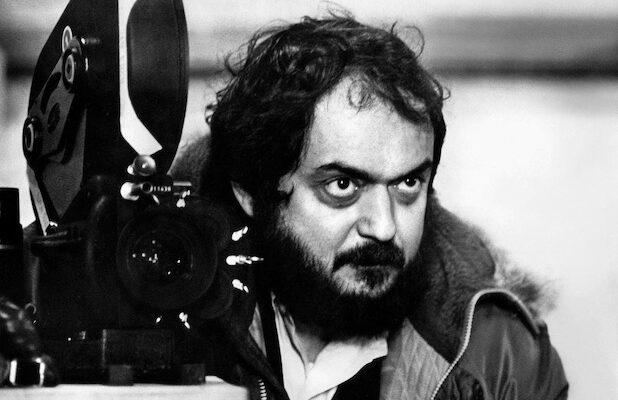‘Kubrick by Kubrick’ Film Review: Stanley Kubrick Explains Himself, a Little

Stanley Kubrick is one of the most written-about, discussed, dissected, pored-over filmmakers in history. He’s been an irresistible subject for critics, journalists, film scholars, documentarians, conspiracy theorists – in short, for everybody except maybe Kubrick himself.
The director, who was born in the Bronx but spent most of his adult life living in England, was famously reluctant to talk about himself. Other people may have wanted his thoughts on movies like “Paths of Glory,” “Spartacus,” “Lolita,” “Dr. Strangelove,” “2001: A Space Odyssey,” “A Clockwork Orange,” “Barry Lyndon,” “The Shining,” “Full Metal Jacket” and “Eyes Wide Shut,” but Kubrick wasn’t interested in explaining anything.
“I’ve never found it meaningful or even possible to talk about film,” said the director who to many might have been like that big black monolith in “2001”: an inscrutable blank with enormous powers, but who knows what’s lurking in the depths?
Also Read: Sue Lyon, Star of Stanley Kubrick's 'Lolita,' Dies at 73
Since his death at the age of 70 in 1999, other films have tried to take a crack at explaining Kubrick, including the 2001 documentary “Stanley Kubrick: A Life in Pictures”; the 2008 doc “Stanley Kubrick’s Boxes”; the 2017 Cannes premiere “Filmworker,” about Kubrick’s longtime assistant Leon Vitali; and the nutty 2012 film “Room 237,” a celebration of the conspiracy theories inspired by and odd analyses of “The Shining.”
Director Gregory Monro’s “Kubrick by Kubrick,” which was to have had its world premiere at the Tribeca Film Festival this month, joins that roster of Kubrick-centric films with an ace in the hole: the master’s voice. The film is structured around a series of interviews with Kubrick conducted by French writer Michel Ciment, so its appeal – irresistible to those of us who have been obsessed by the director’s work – is to hear Kubrick’s own take on his work.
Of course, Kubrick kind of gets the last laugh in this. The interviews are on audio, not video, and of varying quality. (He seems to be eating during one stretch.) They’re fascinating because any instance of Kubrick sharing his thoughts would be fascinating, but there are few revelations here.
Also Read: Lost Stanley Kubrick Screenplay 'Burning Secret' From 1956 Unearthed
And there also isn’t enough of Kubrick’s voice to sustain even the short, 73-minute running time. Before the first half-hour is up, Monro turns to other people talking about Kubrick’s inspiring but infuriating perfectionism: Malcolm McDowell, Sterling Hayden, Shelley Duvall, Jack Nicholson and composer Leonard Rosenman are all entertaining, but they’re also marking time until Kubrick returns. And when the film gets to Kubrick’s final film, “Eyes Wide Shut,” we’re left with Tom Cruise talking to Barbara Walters about monogamy, when it would have been really nice to know what the hell Kubrick was thinking.
(Kubrick died only a few days after finishing the film, so he couldn’t have done interviews about it even if he wanted to.)
But if there’s not quite enough material to really make this Kubrick by Kubrick, Monro works hard to make it an apt tribute to a filmmaker whose influence still resonates. Lyrical interludes throughout the film are set in a recreation of the cold but elegant drawing room that astronaut David Bowman found himself in at the end of “2001,” but Monro puts movie posters on the walls of that room and objects from other Kubrick films on the table, and then his camera caresses those objects with a fetishistic zeal.
Meanwhile, Kubrick’s voice comes in and out, talking about how valuable his background as a magazine photographer was (“How could you make a movie if you don’t know anything about photography?”) and celebrating the act of researching a film, which he compares to “being a detective looking for clues.”
Also Read: Is There More to 'The Shining'? 'Long Cuts' of Kubrick Film up for Auction in Italy
He talks about how the cinematographer on “Spartacus” couldn’t understand why Kubrick insisted on looking through his own viewfinder and composing each shot in the film, and tells the story of setting up a key scene in “2001” with no idea of how it was going to make any sense until just before they started shooting.
Mostly, though, Kubrick seems to respond to questions not about the movies, but about the themes they explore. He tosses his thoughts off casually: “How can authority maintain itself without becoming oppressive?” he asks at one point, then muses, “Man seems to lack the intelligence to think his way out of the present trap we seem to be in” at another.
And when it comes to cinema, he seems unconvinced that the art form is worthy of profound thought. “The real explosion will come,” he says, “when someone finally liberates the narrative structure.”
You could argue that Kubrick himself came close to doing that with “2001,” but he doesn’t make any such claim in “Kubrick by Kubrick.” Despite its access to the words of its subject, this is a low-key, stylish film of interest mostly to Kubrick devotees – but since that includes an awful lot of the people who have any interest in the art of film, there should be an audience who want to hear what the guy had to say.
With its Tribeca premiere canceled because of the coronavirus, “Kubrick by Kubrick” is now looking for distribution.
Read original story ‘Kubrick by Kubrick’ Film Review: Stanley Kubrick Explains Himself, a Little At TheWrap

